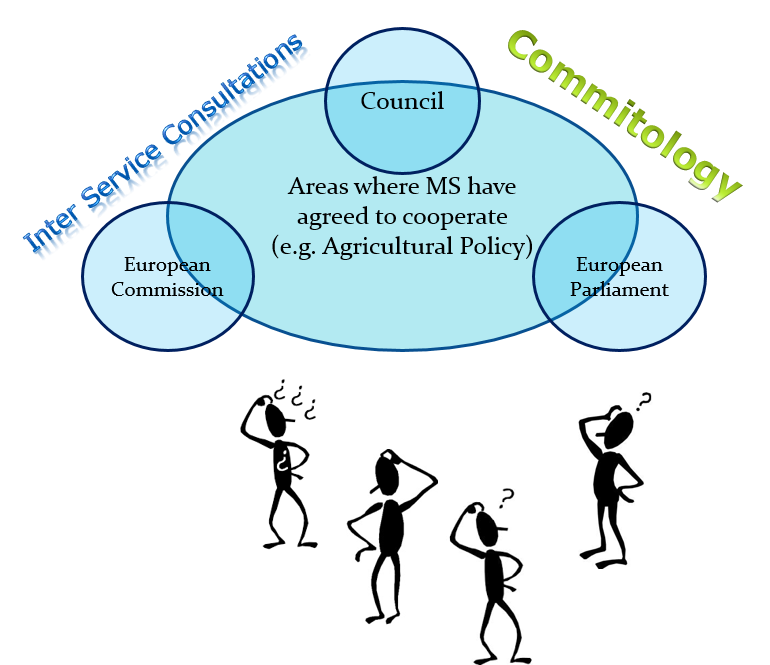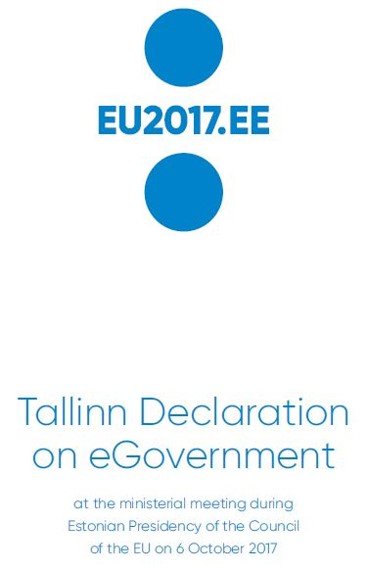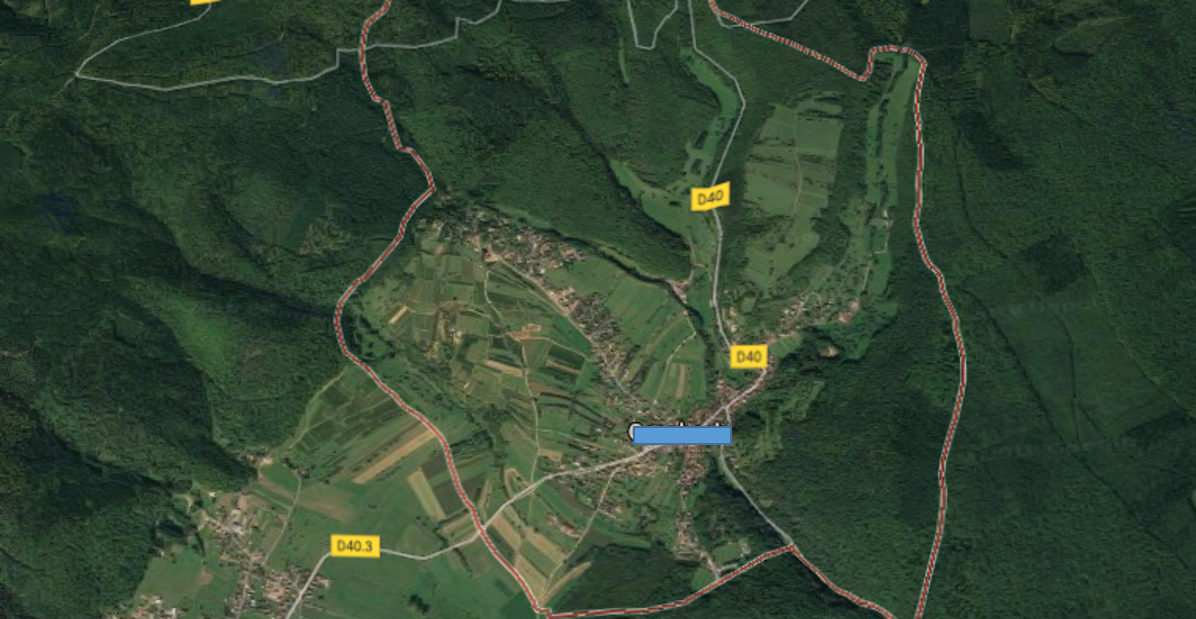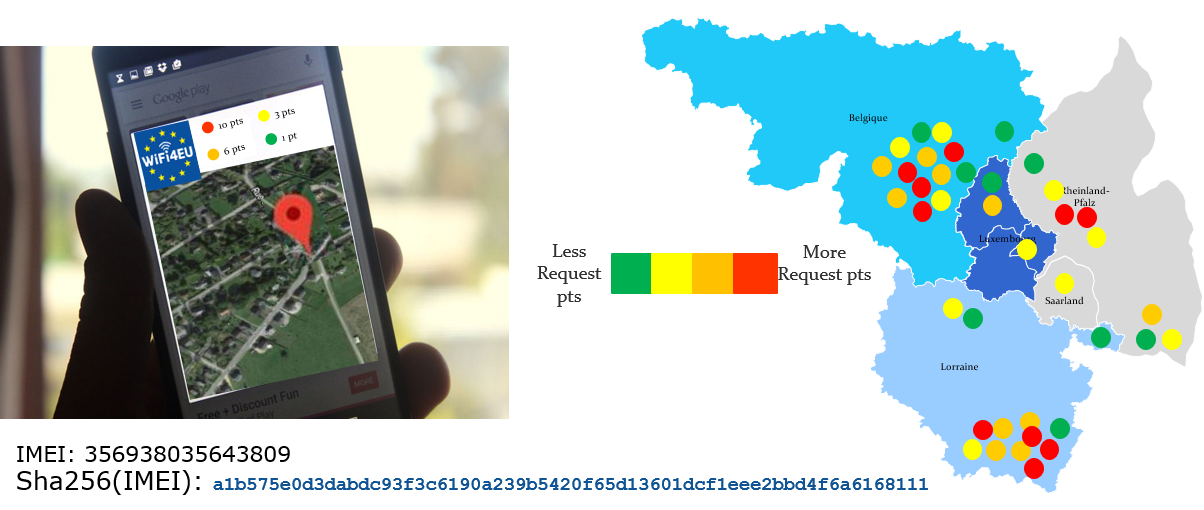The information I present here reflects my personal views and does not represent the official opinion of the European Union nor the European Commission.
The European Commission
First, a few words about the European Commission. It has two main "core-missions"
- Initiate legislation (regulations, directives, etc.)
- Fund the priorities agreed upon by the Council of the EU (thereafter "Council" in short) and the European Parliament (thereafter EP)
Legislative activity
Although to an uninformed eye it might look like the Commission initiates legislation "out of the blue", this is very far from the truth. The legislative process is so complex that no one in his right mind would start if it didn't have a pretty high number of allies in the other political bodies, and a good chance to succeed. In truth, a loose agreement about the need to legislate at the European level is reached way ahead of the Commission putting a draft legal act through the grinder.
When that process starts, it is by force a mind-boggingly complex choreography involving outside experts, NGOs and lobbyists from the 28 Member States, all with their own agendas, under a process called "comitology"; the Council and the EP as well as the consultative bodies "Committee of the Regions" and the Economic and Social Committee. I oversimplify to avoid readers falling asleep.
Despite what conspiracy theorists would have you believe, this is not the result of deliberate obfuscation but simply the first "Nash equilibrium" that the Member States (MS) have managed to reach. Crafting legislation that suits 28 member states as different from one another as the EU member states is bound to be extremly difficult and complex. That a very delicate balance manages to be reached sometimes is close to a miracle.

Could it have been more transparent, less complex? Well, assuming you start again, using humans (i.e. mere mortals) I strongly doubt it.
Funding commonly-agreed political priorities
A picture speaks a thousand words. Here a much simplified schema of the process through which the Commission funds projects (image coming from the European Court of Auditors). Again, this is not complicated on purpose, but that doesn't make complexity desirable. It is an unfortunate but inavoidable side-effect of having to coordinate expenditures over so many layers of decision (including the national and local levels)

The Big Question
How could the Commission be closer to the EU citizens?
This is not a question that I alone am asking. It appears clearly from the recent "Tallinn declaration on eGovernment" that was fittingly brokered by Estonia, possibly the most high-tech of the EU member states, during its presidency of the Council.

In it the EU, through its governments and institutions, including the Commission, openly state that they are on a quest to come closer to the citizens, to serve the citizens better, to be more "citizen centric". The governments of the EU commit to open, inclusive, borderless, user-friendly, end-to-end digital public services to all citizens and businesses.
They talk about "digital by default", about the objective of allowing the citizens to interact digitally with public administration. And they commit to the principle of user-centricity for design and delivery of public services
Blockchain and the European Commission
As it happens, incentive alignment is the biggest challenge to effective and efficient policies.
- Citizens cannot easily give feed-back to lawmakers on legislation
- The EC has few easy ways to measure the actual impact of the funds it disburses
These difficulties ultimately erode trust in government. The importance of which has been asserted in the Tallinn declaration:

We believe blockchain technology will allow the EC to make credible commitments to the EU citizens. And to illustrate what I mean by that, I'll take the example of the "WiFi 4 EU" policy, put forward by President Juncker during the "State of the Union" address of 2016

"... we propose today to equip every European village and every city with free wireless internet access around the main centers of public life by 2020."
This is obviously a costly policy and the money to deploy it will be made available gradually. There is a clear imperative to make sure that wherever money is deployed, it responds to a real need for internet connectivity because the free market has failed to provide it - typically in "digital deserts", digitally-deprived areas often located in mountainous areas. Such an area might look like this (Google Maps satellite image):

Questions about the efficiency of digital policies
How to ensure that the WiFi4EU equipment is deployed where it is most needed? That the money is allocated with priority to provide Wi-Fi connectivity where no or few other options are available to connect to the internet? That the process is as transparent and fair as possible?
Blockchain answer:
Engage directly with the citizens! Ask them to "vote" for the spots that should be equipped with free WiFi with priority. This could be brought about by engaging and empowering the citizens.
The EU citizens could thus be offered an app which, upon installation (presumably when the user finds himself in an area with internet connectivity), would associate a number of "votes" ("request points") with the hash of the device's IMEI (or the IMEI+ Sim card's PUK for even greater anonimity). The citizen would then be able to allocate those "request points" to wherever he would like the EC to pay a supplier to install a WiFi hotspot.
The data could then be aggregated and displayed as a "heat map" over the map of the EU. Based on that information, the communes that will receive funds to get equiped will be ranked according to the directly-expressed will of the EU citizens - those for whom this policy is ultimately intended.

A pan European blockchain infrastructure could spring into existence by inviting every willing EU citizen (on a voluntary basis) to run an EU-blockchain node, knowing that the blockchain is secure and saving set-up and operation costs for the EC. In turn, the EC would benefit from resilience thanks to a wide distribution of nodes and would generate trust in the outcome through the transparency and immutability of the blockchain-recorded data.
The people running the blockchain nodes will probably be more tech-savvy and located in areas with good internet connectivity, thus likely disjoint from those using the app to vote to request the installation of WiFi4EU hotspots. In time such an infrastructure could find an utility in other situations where a quick pan-EU consultation might provide direct insights from the citizens.
Questions about the effectiveness of digital policies
How could the EC check the effectiveness of digital policies - such as in this example, WiFi 4 EU ? How to fight potential fraud? Here are some more detailed questions we would like to have answered:
- "Are the WiFi4EU hotspots still in place and working after the supplier has received payment?"
- "Is the connection quality (bandwidth, latency, etc.) in line with what the supplier has committed to in the contract?"
- "Are actual connections over the installed hotspots being established and used by the citizens?"
Blockchain answer
Compare connection data from the citizens' devices to data sent by the hotspots themselves!

- Functioning of the hotspots can be monitored over a longer period (no more "unscrew the WiFi routers after pocketing the money and sell them again")
- Data about established connections sent by hotspots can be reconciled with data sent by the phones of the EU citizens for whose benefit the policy was devised (no more "hotspots are there, money has been disbursed but the connection is so lousy that no one uses it")
- Quality can be monitored across Europe in a harmonized way (if the service offered is not in the parameters to which the contractor has committed to, proportionally less money is paid to him)
- Payment of the supplier can be linked to the outcome (configurable rules: how many concurrent connections, how much data transferred, etc.)
Conclusion
The use of blockchain technologies can reinforce trust in government and generate a virtuous circle of engagement between citizens and the EU. Blockchain technologies could allow the EC to:
- Easily consult the citizens whenever needed
- Make credible commitments and promises to the citizens
Moreover, they could allow the EC to directly check the effectiveness of certain digital policies, by enabling:


